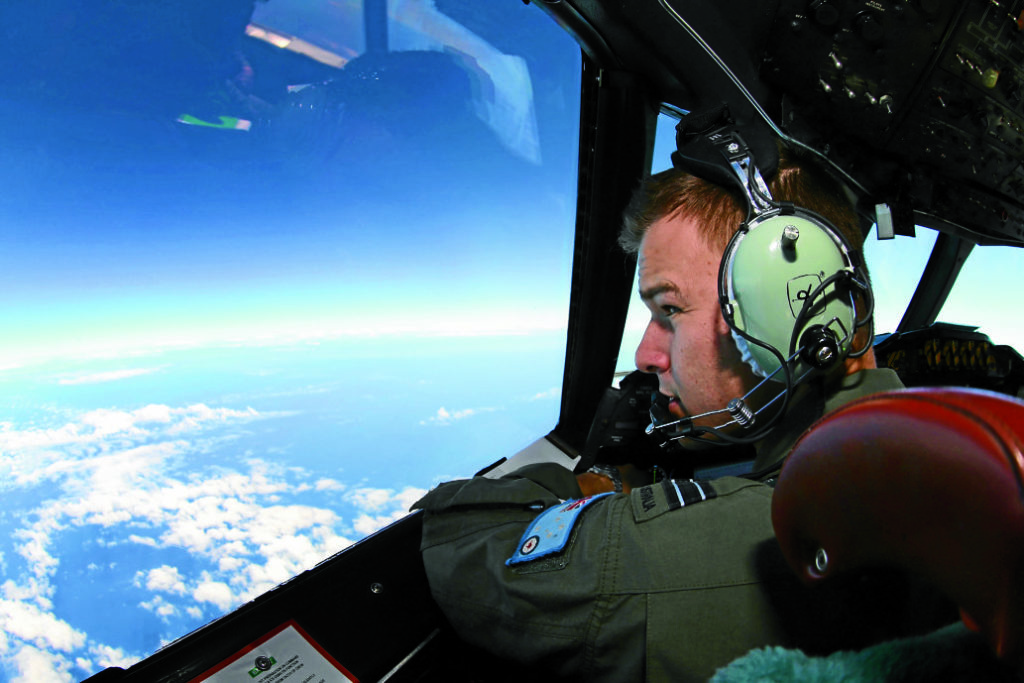The Australian air force would be flying two spy planes over Marawi’s battle zones to help troops who have been trying to dislodge Islamic State (IS)-linked fighters from the Islamic city for a month now, officials said on Friday.
“We would gladly welcome any form of foreign assistance allowed under our Constitution to help suppress the rebellion in Marawi,” presidential spokesperson Ernesto Abella said in reaction to Australian Defense Minister Marise Payne’s statement of her government’s military aid to Manila.
Payne said on Friday that the Philippines had accepted Australia’s offer of two AP-3C Orion aircraft from the Royal Australian Air Force (RAAF).
“The regional threat from terrorism, in particular from Daesh and foreign fighters, is a direct threat to Australia and our interests,” Payne said in a statement, using an Arabic acronym for IS.
She said that she recently spoke with Defense Secretary Delfin Lorenzana on how Australia could help in the fight against terrorists.
“We agreed the best way to defeat terrorism in our region is for us to work together,” she said.
Australia has an extensive security cooperation program with the Philippines.
The United States, a defense treaty ally of the Philippines, has been flying the same type of aircraft in addition to drones operated by US Special Forces in support of ground troops who have been battling the Abu Sayyaf and Maute groups, and their local and foreign allies since their siege of Marawi began on May 23.
Boost to anti-IS operations
Brig. Gen. Gilbert Gapay, deputy commander of the Eastern Mindanao Command, said the Australian planes would be a boost to the military operations against the IS-linked gunmen.
“In every military operation, the intelligence surveillance and reconnaissance capability is very important,” Gapay said in a press briefing in Davao City.
The spy planes could also be used “in all other [military] operations in Mindanao,” he added, without elaborating.
Orions are capable of land and maritime surveillance, antisubmarine and antiship warfare, and naval fleet support.
These planes are used by the RAAF in providing support for border protection and fisheries patrols in Southeast Asia and the Pacific.
They are often used for maritime search and rescue operations and had been used extensively in the search for a missing Malaysian Airlines jet that crashed in waters off Australia in 2014, according to the RAAF.
Philippine defense officials said the planes would be used for two weeks after the two sides agreed on when they would start the surveillance flights.
They said there would be no need to embed the Australian military personnel who would be involved in the operation with Filipino troops.
In her statement, Payne also said Australia would continue to work with its partners in Southeast Asia to counter terrorism in the region.
The announcement of the Australian military aid came a day after Foreign Secretary Alan Peter Cayetano and his Malaysian and Indonesian counterparts, and their senior military and security officials held talks in Manila on a joint plan of action to halt the flow of militants, weapons, funds and IS propaganda in the region.
“The three countries have agreed to work together to jointly develop and implement counterterrorism and [other] measures and strategies,” said Abella, who was in Davao with Gapay.
“Let us underline that their joint aim—the end game—is to prevent the establishment of operational bases in Southeast Asia,” he said.
The military operations and the martial law declaration in the whole of Mindanao “have actually preempted the establishment of a wilayat,” Abella said, using the Arabic term for province, which the IS had planned to establish in Mindanao as part of its caliphate. —WITH REPORTS FROM THE WIRES


